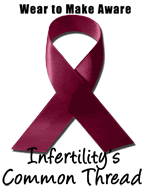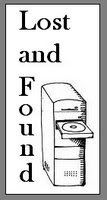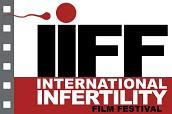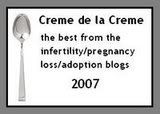 The Handmaid's Tale by Margaret Atwood is a thought-provoking tale about religion, politics and reproduction - how the freedoms that we sometimes take for granted in today's society are luxuries, rather than guarantees. Our protagonist, Offred (derived from "Of Fred" - her Commander), lives in a world where her only purpose is to get pregnant and produce children for her assigned Commander. As a Handmaid, her only sense of worth is her uterus. Any attempt to escape would surely lead to beatings, or worse. Women in the Republic are not allowed to read, write, work or in some cases, even make eye contact or speak to one another.
The Handmaid's Tale by Margaret Atwood is a thought-provoking tale about religion, politics and reproduction - how the freedoms that we sometimes take for granted in today's society are luxuries, rather than guarantees. Our protagonist, Offred (derived from "Of Fred" - her Commander), lives in a world where her only purpose is to get pregnant and produce children for her assigned Commander. As a Handmaid, her only sense of worth is her uterus. Any attempt to escape would surely lead to beatings, or worse. Women in the Republic are not allowed to read, write, work or in some cases, even make eye contact or speak to one another.
But the world was not always so restrictive. Offred had a husband once, and a daughter of her own, which we hear about through flashbacks. She also had a best friend. With all of that now just a distant memory, Offred gives us a glimpse into her isolated world and makes us question the liberties that we have come to expect.
The Handmaid's Tale was a difficult read for me, but rewarding in the end. It was very descriptive and at times, I found it a bit verbose. But the ultimate message of the book is something that I still ponder after finishing it. I can't help but think, "what if that were us?". We would have no blogs to write about our experience. We would not be able to read, or have careers. And while TTC is altogether consuming, it is still our choice to bear or not to bear children. What if those choices were already made for us? Sweet, yet haunting, The Handmaid's tale is definitely one I recommend.1. I found it interesting that although Offred would be unable to raise any children she had, she still yearned to be pregnant. It seemed like more than just the fear of what would happen to her if she wasn't successful. Where do you think her desire for a baby stemmed from?
I think Offred's desire to be pregnant also stemmed from her memories of being pregnant with her daughter, before the days of the Republic of Gilead. She flashes back to feeling the baby kick inside of her, and to memories of her family. Those memories gave her a temporary sense of peace and represented a part of her life that she wished she could have back for just one moment, so she could enjoy each minute rather than foolishly taking it for granted. Being pregnant again would not only cleanse her from being deemed Barren, but would perhaps bring her back to a time where she was more than just a uterus and ovaries. Being pregnant would be a 9-month escape, where she would no longer be forced to share her body with a stranger and could enjoy things like feeling the baby move inside of her - little things that could be hers and hers alone. 2. Doctors that had performed abortions were now criminals according to the newly formed government, penalized by death. Obviously, infertility had become an epidemic by that time. Do you think that there is a justification for criminalizing abortions if the future of humanity were at risk due to infertility?
I think this is treading a fine line and I personally do not feel that the government should have the ability or the right to tell women what to do with their bodies. By removing our freedom to make a choice about our reproduction, it opens the floodgates to other areas of our lives where we make choices - our careers, our hobbies, our husbands or lovers, our homes and material possessions. Where would you draw the line? If infertility were really an epidemic, I believe that the government should offer incentives to women and men to induce them into parenthood. More money, assisted reproductive technologies, health care, etc. However, I do not believe it should be a decree or a law that criminalizes women for making choices about their bodies.4. In Chapter 12, she is talking about her body and states: "I avoid looking down at my body, not so much because it's shameful or immodest but because I don't want to see it. I don't want to look at something that determines me so completely." Dealing with infertility we face many challenges, and one is coming to terms with our body's shortcomings. How do you view and deal with your body now, compared to pre-IF (or lack of knowledge on IF), does it determine you, and do you accept it or avoid it?
I often think of my body as a ticking time bomb. Having been pregnant twice and never carrying a live baby home, I am waiting for the other shoe to drop. When will the timer run out and when will this life inside of me be taken away? Before IF, I was happy with my body. I would look at myself in the mirror and think I was attractive. Now, I see myself in a much more negative way. I see the bloat that years of IF has given me. I see a body that has proven to be a failure. I hardly look in the mirror at myself anymore unless it is to look at my face. I don't consider my body to be an exact representation of myself - it does not determine who I am as a person. I do not believe that I am a failure for having miscarriages or for having faulty ovaries and a wicked uterus. I think it actually makes me a more sincere, caring person and it also makes me much more appreciative of life. So, I do avoid confronting my body but I refuse to let it define me. (This should be my new mantra!).5. Did you find it conflicting that the book showed a male-dominated culture, even in reference to reproducing, when in our culture it seems that women take the brunt of the responsibility? Even though male infertility was ignored in their culture and females were given stints with new commanders ("tours of booty," as I came to think of it), did you feel the men were still in charge of procreation? How does this differ from our reality?
While women in our society usually take the brunt of the responsibility with fertility treatment, I believe there is still a stigma regarding infertility. Even though MFI and Female Factor each account for 40% of infertility cases, it is often seen as the woman's problem. "Oh, she's having problems getting pregnant...she must be barren". I think there is little knowledge about Male Factor, and most people automatically assume that the infertility is due to the woman. In the Republic of Gilead, I think that while the men believed they were in charge, it was no secret that some of the men were thought to be infertile. The doctor and the women were not naive, and would often seek the services of other men to get around the problem. I did not see that the Republic of Gilead differed greatly from our own society with respect to Male Factor.6. The notes at the end of the book talk about how the fertility "crisis" was caused by environmental things like nuclear power plant accidents. While there are a number of causes of infertility that could not possibly be related to environmental factors, what do you think the likelihood is that some of them (i.e.: ovulatory dysfunction, male factor issues, unexplained) could be caused by things in our environment today? If you have these as your diagnosis have you ever done anything to change any environmental factors in your life to try to affect a change in your fertility?
I wrote a post for Blog Day a while back on this very topic. I was surprised by the statistics I found regarding environmental toxins and their effect on fertility. It was quite alarming. I do believe that the environment plays a role in infertility. The hormones in animal byproducts and toxins such as caffeine or cigarette smoke all affect our bodies in various ways and can affect the way we ovulate or produce sperm. My official diagnosis is ovulatory dysfunction and I have read many reports about how diet and health can affect my ovulation pattern. While my RE has never mentioned a change in diet, there are a few things I have changed to increase our odds of conception. I have limited my caffeine to 200mgs per day or less. In most cases, I have cut it out completely by switching to decaf or caffeine-free. I have also limited my consumption of "diet" or "low-fat" products, as the artificial sweeteners and other ingredients can be harmful while TTC. I have never smoked in my life but my DH was a smoker and about a year before we began TTC, I made him quit (well, nagged politely and he obliged me) so we could have a better chance. 9. It was at one time hard for me to put myself in the Wife's shoes, but having dealt with infertility on a more personal sense, I find that I can sympathize with her and her role in this society. If you had to be in this society, how could you cope with your role in it? Would you be a Wife or a Handmaid? Could you sympathize with your counterpart?
I think that either role would be tragic, but I think I can definitely relate to being a Wife. While I can get pregnant, I have yet to stay pregnant. In biblical times, the infertile women gave their husbands handmaidens to bear the children they could not have. This would be a similar situation. It would be painful and I have no idea how I could cope with this role. I have no idea how I could watch my husband have sex with another woman and/or see this woman bear his child. Even if we would raise the child as our own, I do not think it is something I care to witness. Having a surrogate is a different process but more appealing for the simple fact that I know my husband would not be having intercourse with another woman. But I do sympathize with the Handmaids. They are given no choice in the matter, and when that is stripped away, they are nothing more than a pro bono prostitute. I think I would feel guilty as a Wife that it was my body that caused such a catastrophe.
Hop along to another stop on this blog tour by visiting the main list at http://stirrup-queens.blogspot.com/. You can also sign up for the next book on this online book club: The Jane Austen Book Club by Karen Fowler (with author participation!)
Sunday, December 09, 2007
Barren Bitches Book Tour #8
with love from
Kristen
at
7:14 PM
![]()
Subscribe to:
Post Comments (Atom)

































16 comments:
I liked your answers, especially the points about MFI and the Handmaid's role.
I completely agree with your response about the abortion question. Retroactive punishment is a dangerous territory.
Great responses. I especially liked the one about male factor infertility and our male dominated society. People do tend to always think of IF as a problem with the woman.
Thank you for sharing your thoughts.
The men in Gilead were shotting themselves in the foot with their refusal to acknowledge all of the complex factors that make up infertility, including male factor. By severing restricting technology the way they did, they probably made the IF problem worse, not better.
Really thoughtful answers. I think you're right about why she wanted to be pregnant - a respite and a chance to rekindle the physical memories of happier times. I can certainly relate to your relationship with your body. I admire that you don't let it define you but acknowledge the pain of it.
These ideas resonated in particular for me: "I think it actually makes me a more sincere, caring person and it also makes me much more appreciative of life. So, I do avoid confronting my body but I refuse to let it define me. (This should be my new mantra!)."
I'm going to adopt your mantra, too. Thanks for sharing your thoughts on the book.
Wow, you covered a lot -- and so well, too.
I hadn't thought of this: "Being pregnant would be a 9-month escape, where she would no longer be forced to share her body with a stranger and could enjoy things like feeling the baby move inside of her - little things that could be hers and hers alone."
Terrific answers, Kristen.
Great answers. I too had not thought of some of the points you raised in the answer to question #1.
I've long said that "I am not my uterus." Infertility is a part of who I am, but I don't want it to define me or be the only thing people remember about me!
If you don't have time to read the book, the movie is GREAT with Robert Duval. I saw it a long time ago and has still remained in my conciousness. It is moving and provocative.
very thoughtful analysis - makes me want to read the book again.
That's a really awesome answer to the last question.
(It's Rebecca @ Clu.msy Ki.sses, come see my post today)
"I often think of my body as a ticking time bomb. Having been pregnant twice and never carrying a live baby home, I am waiting for the other shoe to drop."
What a perfect way to describe it, that stillness as you hold your breath (albeit figuratively) through pregnancy.
Fantastic answer.
I'm surprised, too, that possible environmental factors don't get more attention in the infertility world. The only items our RE ever mentioned were caffeine & smoking, with no mention of other dietary factors like animal hormones, or chemicals or pollutants, etc. I decided on my own that we should switch to organic foods, to try to cut out foreign hormones that might somehow be interfering. My husband's family thinks it's nonsense, but the more I read about food processing, the more I I wonder how much interference is out there that we're just being naive about.
It's true about the Wife's role. What a difficult position. And it comes across in her reaction to the events as well - not only in the way she treats Offred, but in her willingness to set up the "donor" situation.
Bea
I definitely agree that environmental factors of today play a role in infertility, and some research proves it. Endocrine disorders can be directly linked to environmental factors. I think that I have a genetic predisposition that can't have been helped by environmental agents. I almost never drink our tap water (it tastes bad for one thing), and have moved to organic foods for things that have hormone additives or are known for pesticides.
As for how I view my body.. I definitely view it more as something that can fail me. I guess for once and for all I've come to the realization that I am not invincible. It takes a while after your 20's in my experience if you don't have this kind of wake up call. I used to take it for granted that I was healthy, and that my body worked well. Now I know that I have a much higher predisposition toward many illnesses that I cannot lower my guard on. I took a while to adjust to that new reality.
Thanks for posting such thoughtful responses. I had a similar reaction to Q9 -- I could find myself sympathizing with and disturbed by each of the roles. That reaction made me think that perhaps I would just ask to be sent to the colonies, but I suspect the frog in a pot analogy is probably apt, and I would likely accept whatever role was foisted upon me, too beaten down to resist by the time I realized the destination the direction society had taken had led us to.
Post a Comment